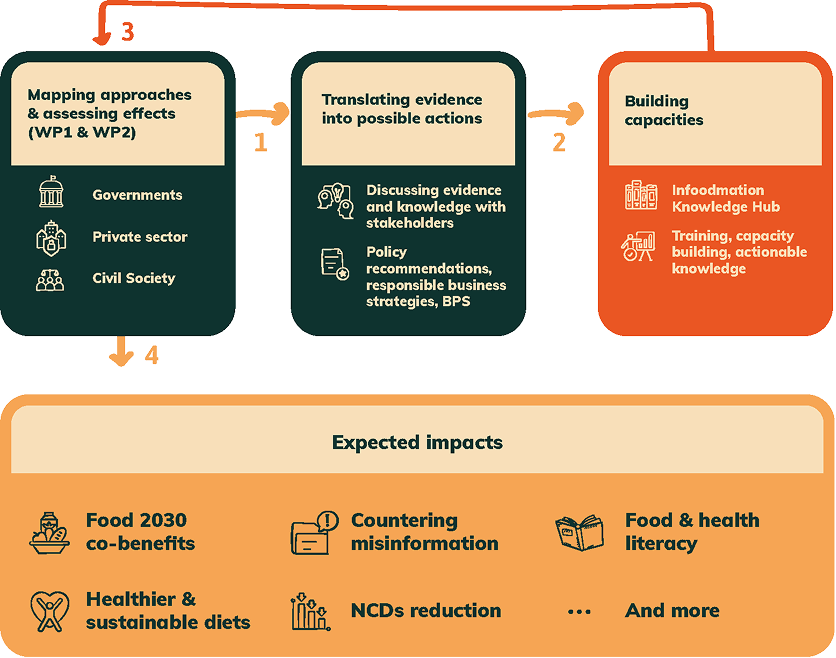
Our mission
From noise to
knowledge
Infoodmation seeks to bridge this knowledge gap by studying the communication approaches used by governments, the private sector, and civil society.
We will evaluate how different messages — positive or negative, accurate or misleading — influence consumer knowledge, attitudes, and ultimately, their diets. By providing evidence-based insights, recommendations, and tools, we aim to foster healthier, more sustainable eating patterns that align with European food and health policies.
From vision
Over the next three years, our multidisciplinary consortium will map current communication strategies, assess their effects on consumer behaviour, and co-create best practices alongside key stakeholders — from governments to businesses and civil society organisations.
Through the creation of a dynamic Knowledge Hub and targeted capacity-building activities, Infoodmation will empower food system actors to provide clear, reliable, and responsible food information.


Based on all of this, we created an action plan.
discover all
5 steps of the plan
The
action Plan
Map
Food communication strategies implemented by the food industry, NGOs and civil society organisations.
Assess
The impact of these communication strategies on consumer behaviour and dietary patterns.
Counteract
Food misinformation by identifying its dissemination pathways and effects.
Develop
Evidence-based recommendations for effective communication strategies and public health interventions.
Build capacity
Among stakeholders through the creation of a Knowledge Hub and a collaborative platform enabling scientific insights and best practices.
Our Methodology
